Sci & Tech
German Precision and Kenyan Stamina
Published
1 year agoon
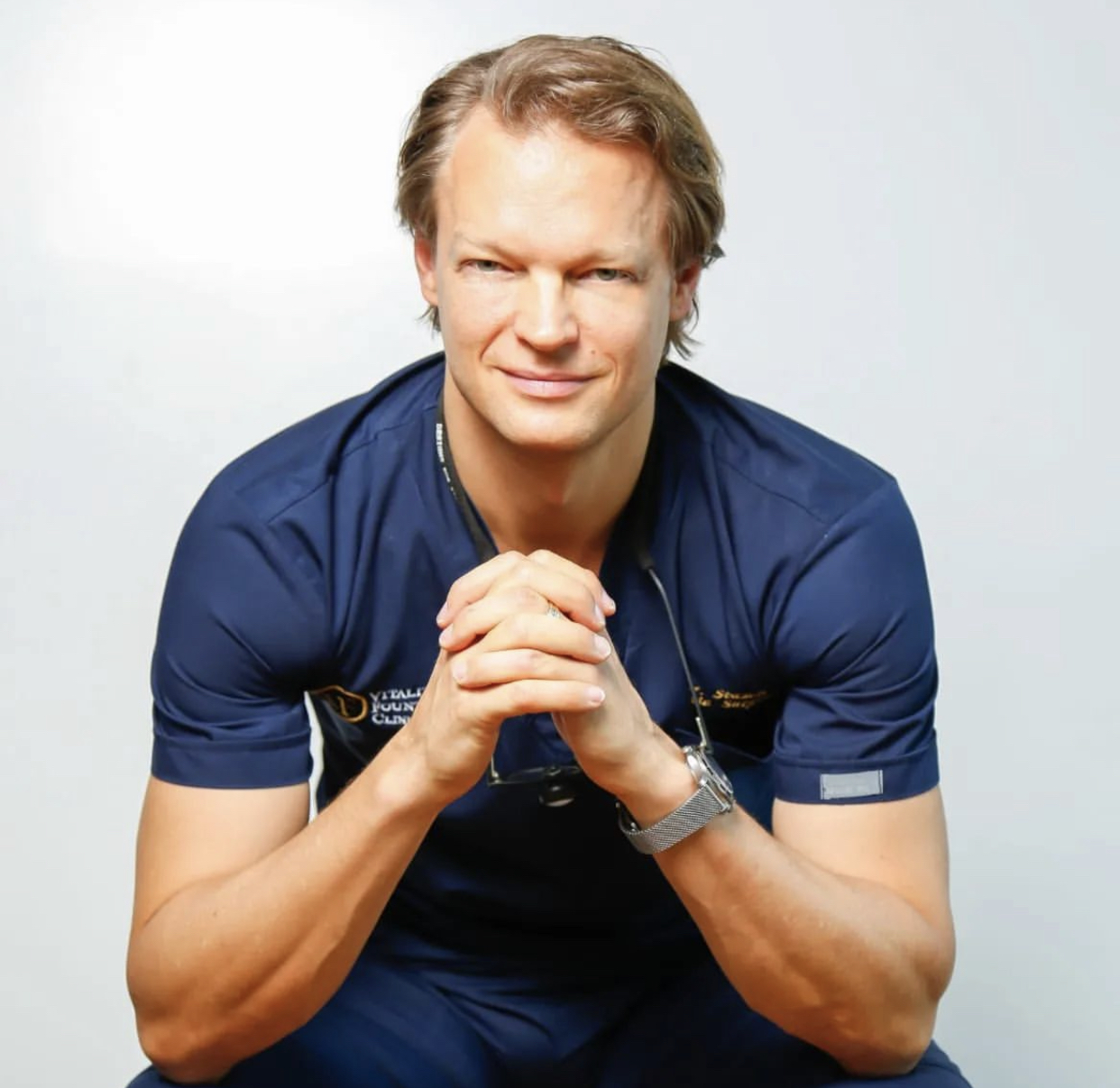
Dr Tilman Stasch is celebrating his 10-year Anniversary of the Clinic for Plastic and Aesthetic Surgery in Riverside Drive, Nairobi.
Behind closed doors of the swish, bright, wooden-floored Dr Stasch Clinic where the AC seem to blow opulence, they confess to Dr Tilman Stasch. They tell the German doctor about the bodies they are not confident about anymore: My breasts are too big. I want the body I had before I pushed three children out of it. I hate my eyelids. What are these wrinkles creeping up around my eyes and mouth? My face is not straight. My ankles are too thin. My belly-fat makes me look old and boring. What can I do about my thinning hair?
Then there are those who come bearing other non-cosmetic issues that involve reconstructive surgery: congenital deformities, burn contracture conditions, keloid therapy, post-surgery septic wounds from other surgeons, chronic wounds. Dr Stasch – blonde and tall like a doorpost with symmetrical looks – absorbs all these complaints and insecurities through his 6’3’’ frame.
His calendar is booked two months ahead. For over to 17 years now (since 2006), Dr Stasch, an internationally qualified aesthetic, plastic and reconstructive and hand surgeon has done countless surgeries in his specialist field of Plastic Surgery. He works 12 hours every day seeing an average of 15 patients and performing five to seven major surgeries a week. The patients are mostly from Kenya and the East Africa region but increasingly he’s seeing more patients coming in from currently 26 different countries including Australia, UK, USA, South Africa, Ghana, Nigeria, Seychelles, and even from the Caribbean.
Interestingly, he hasn’t done much of marketing of his services. Patients come through the strength of other patient’s recommendations because what’s a more powerful marketing tool than the tongue? His patients also consult the detailed website to get in depth information about himself and the procedures offered atDr Stasch Clinic and Dr Statch Medispa.
Amidst the madness of his schedule, he finds time to attend conferences to speak and teach, being an active member of the prestigious International Society of Aesthetic Plastic Surgeons [ISAPS].
He also recently became a Kenyan Citizen, the latest jewel on this crown.
First, congratulations for having your Kenyan passport. What does that mean for you and your practice?
Thank you. It means a lot to me. I love being here, and now being part of this amazing country as a citizen makes me proud. Professionally, I have more freedom as a surgeon to operate from wherever I want to operate. As a foreigner you are only allowed to operate from one designated hospital. There is a patient of mine called Angela (name changed) who had had severe burns on her face as a child and wanted to correct the defects, back in 2016. I offered to do it for free but I couldn’t perform it pro bono in the hospital I usually do my operations, or another hospital because of these government regulations. When I became a citizen, that’s the first surgery I did. It was my first act as a citizen and the proudest moment as a Kenyan. It’s been a long journey getting citizenship, almost 10 years of going through the proper channels.
It is a game changer for me because I’m now not tied to one hospital and I’m more efficient to offer my patients highest quality and a wider variety of services. Over the next ten years we want to focus on being world class for every patient every time, offering the kind of facilities you would get in Dubai, Berlin and LA, as well as sharing our knowledge by mentoring, teaching, and continued learning events.
You could have been anything, a pediatrician or gynecologist, why plastic surgery?
Fascination. When I was in sixth year at University of Cape Town Medical School, I was so keen to do the postgraduate microsurgery course which meant dissecting tiny little blood vessels of rats. They allowed me to participate although I was more than 10 years younger than everyone else. Microsurgery is the skill that you need to perfect, in order to reconstruct people ́s missing tissue in reconstructive surgery. For instance, after breast cancer we can replace the breast with tissue from the tummy and that tissue only survives if you connect blood vessels from the tummy to the blood vessels of the chest. All this is done under a microscope with tiny sutures which are smaller than a human hair.
So from a very early stage of my career I was fascinated by that level of detail and when I finished medical school in South Africa, I underwent the whole basic surgical training both in the UK and Scotland with the aim of becoming a Plastic Surgeon. After two years of basic surgical training and being admitted to the Royal College of Surgeons of Edinburgh, I started my plastic surgical training in Edinburgh and Norwich in 2006, cumulating in my Specialist Certificate in Plastic Surgery from Cologne University in 2009, and the completion of my specialist training in Hand Surgery in 2012. My intense training covered the five pillars of plastic surgery: reconstructive surgery, burn surgery, microsurgery, hand surgery and cosmetic surgery. So, it’s not all about making people beautiful, it’s more about healing bodies, rebuilding of the soft tissues and regaining function – that’s what plastic surgeons do usually.
My vast international experience in different teaching hospitals has taught me important lessons on safety for the patients to avoid complications and achieve best results, but also how to handle complications as and when they arise, competently.
What events led you to coming here? And why Kenya?
I grew up in Germany but our family moved to Namibia in 1993. I finished school there and then went to Uni of Cape Town / South Africa because I thought it’s a cool city. I lived in Africa for ten years before moving back to Europe to pursue my surgical career. And then fast forward to 2010 after I had qualified as a Specialist in Plastic, Reconstructive, Aesthetic and Hand surgery in Germany and became a Fellow of the European Board of Plastic Surgeons (EBOPRAS), I started coming to Kenya frequently through a friend. I got to know the few Plastic Surgeons that Kenya had at the time, who encouraged me to conduct training courses, workshops and lectures for their resident trainees, and eventually to move here.
Being involved with teaching of the local doctors the knowledge I had acquired in Europe, mostly on hand surgery, cosmetic workshops, also bringing in international plastic surgeons to come and teach in Kenya, felt good, and I felt I could make a difference, because I guess the specialist field of Plastic Surgery was only starting off back then.
I was happy to transfer my knowledge to these young doctors; the Kenyan Plastic Surgeons confidence in me was so high that they appointed me external examiner at the University of Nairobi for the MMed Candidates between 2014 and 2016. I was also privileged to partake in many charitable projects at Kenyatta National Hospital between 2010 and 2016 together with my Kenyan collegues, giving back to those in need by conducting pro bono operations for children and adults with conditions needing reconstruction.
The Aga Khan University Hospital Nairobi then gave me clinical privileges and admitting rights in 2012 to practice there, after I passed their interview process and the Kenya Medical Board licensed me to practice in the country. Needless to say I received renewals of my work permits and licenses without fail or interruptions.
I then built the practice over the course of four years while flying in and out from Europe. It was very hectic, almost not getting any day off for all those years. Eventually it just seemed practical to move here completely after my 24th trip to Kenya, which was in 2015. 2023 marks our 10th anniversary since having opened our Clinic in 14 Riverside Drive. Over this time period we’ve seen doubling of the number
of patients every year, a huge growth of the services we offer, and obviously many many happy patients.
How difficult is it to set up a private practice here as a foreigner?
It’s very difficult as a foreigner because you have to be affiliated with an institution, so that’s why I was always working under another doctor and with other doctors. That’s obviously limiting. You can only do operations at that hospital, not any other. I stuck to the rules. You need a lot of dedication to set up a private practice, a lot of attention to detail and focus on patient quality of service because they trust you and they want the best outcome. You need patience, stamina, dedication, sense of quality and of course lots of passion. Since I have become Kenyan, I have been able to expand my services to other areas in the country.
As a clinic, we are also a business which needs to be sustained and maintained with lots of investment into the latest technologies, keeping knowledge at the latest cutting edge and employing more staff to provide highest standards. Although people may think that Plastic Surgeons are making lots of money, turnover doesn’t necessarily mean high profits. And other entrepreneurs will attest to that. With our clinic, we are supporting over 40 people directly or indirectly, providing important employment for Kenyans and revenue for supply companies and affiliated businesses like pathologists, other doctors, laboratories, logistics etc.
Do you have to go through certain certifications in order to be given the go ahead?
Definitely. So the first step was to get a work permit, and in order to get a work permit you need to get a letter of employment, so I got that endorsed by the Kenya Society of Plastic and Reconstructive Surgeons (KSPRAS) and Aga Khan Hospital (AKUH). With that I went to the medical board (KMPDB) and they did a peer review and they gave me the license to practise. Peer review means there is a board of about eight doctors including Plastic Surgeons sitting with you in an interview and testing your knowledge, certifications and suitability to practise. I also went through an internationally accredited system in America (EPIC) which checks your qualifications – this international accreditation that all certificates are correct and that I am qualified is mandatory for international doctors to be licensed in Kenya. The license with the Medical Board had to be renewed every single year and for them to do that, you have to be in good standing, meaning there are no allegations of misconduct, and no cases against you are in existence. Additionally, it is a requirement to continue accumulating more qualifications, that is, professional development points have to be submitted. Needless to say our clinic and my licenses have been in order ever since I started working in Kenya. We have a page on the clinic website with all documentation, licenses and permits so that prospective patients can ascertain that we are operating at the absolute highest standards.
What are some of the common procedures that you encounter here in your practice?
We offer a wide spectrum of Plastic Surgery, Dermatology, Advanced skincare, Cosmetic medicine and Regenerative medicine, with an affiliated MediSpa. While in Europe patients ask more for breast augmentation and generally want more sporty, slimmer bodies, in Kenya the demand for breast lift or breast reduction is higher, mummy makeovers and more curvy bodies emphasizing the feminine shape. That’s where I coined the term “Kenyan Buttlift” which means transforming a patient`s body from a full waist, straight body frame and empty hips to a more curvy, S-shaped silhouette with snatched waistline and round, full hips. In Kenya, some patients are also asking for fuller ankles and legs, which can be achieved with fatgrafting.
Do you do pro-bono work?
I started doing pro bono from day one of coming to Kenya. I started at Kenyatta National Hospital as part of a team. That involved burn reconstructions, complex hand surgical reconstructions, and defects that children are born with. Then I regularly participated in a program in Lamu (King Fahad District Hospital) where we operated patients who didn’t have access to reconstructive surgery for free, with a mix of international and local surgeons. I do about three to four pro bono reconstructive surgeries per month currently; it’s a combination of doing it here at the clinic for smaller procedures, or at P.C.E.A Kikuyu Hospital for larger surgeries. So over the years I must have done hundreds of those, some of the projects are documented on a special website: Kenyaplasticsurgery.com For me it’s my way of giving back. And because there are not enough plastic surgeons in Kenya, I try to play my part in order to help those kinds of patients. To serve a population of over 50 million Kenyans, we would ideally need hundreds of Plastic Surgeons.
What’s been your proudest moment so far?
I’m pretty proud of my daughter, she’s turning six years this year. She is happy, healthy, and keeps me focused on being the best dad and best man I can be.
I’m also proud of having built a Center of Excellence here with a great team of dedicated staff, some of whom have been with me for countless years. I’m also proud of the numerous good reviews and the happy patients that I have. This is particularly true because every single patient is a new chapter, isn’t it? For them it’s the first surgery, for me it’s maybe the 900th surgery, but it has to be perfect, every single time. And every time a patient comes in for their six week or 3-month post-op consultation, with a big smile, a new dress, maybe a bottle of wine or some chocolate for the team, saying “Doctor you have changed my life” – that just makes all the hard work so worth it.
And what’s been the most challenging part of doing what you do?
I think the focus and the concentration you need to have. You have to be sharp and motivated for every single procedure, for every single patient. Every minute of a four hour op I need to be present and at my best, especially if I perform 3-4 surgeries a day. If you have a patient who despite your best effort is not 100% satisfied, then those are challenging situations because I promise, and our entire team, on really making every single person happy, every time. So if somebody is not 100% happy with the outcome, be it maybe the scars are a bit raised, or there’s a little bit of fat left over somewhere after liposuction, I correct those imperfections for free. I need to be very happy with the outcome and have patients who can now fall in love again – with themselves.
Its not always been easy, but needless to say we keep on delivering best services and excellent results despite the hurdles along the way.
Under what circumstances do you feel, ethically, you can turn down patients?
If their expectations are unrealistic. And that happens sometimes. So people will come with pictures from Instagram, with their bodies that don’t even remotely resemble those pictures, and say, ‘I want to look like this.’ I will be real with them, show them what I am able to do by showing them before and after pictures of my patient cohort from the past. We are all born with different shapes, sizes and proportions. What I strive for is to get the best out of the body you have! Ideally all my patients will do the same in the form of exercise and balanced diet before and after the surgery, so keep it for the rest of their lives.
The other thing is if the patient is too young, asking for procedures that I personally believe they don’t need, I won’t do it. I won’t do Botox on an 18 year old. I’m very happy to tell them that they should focus on their beauty that they already have, or maybe use sun protection to keep their skin healthy. A good number of people have this impression that they are not beautiful because individuals have told them something like your nose is too big, or your ears are too small. But then if you look at them, it actually looks fine. It’s my obligation to correct that narrative. But all I can do is just give them my opinion why they don’t need the procedure.
Does how we look physically make us happier? Or in other words, will a better looking nose bring me happiness?
There’s no straight answer to that. So in my experience yes, it can definitely happen that a woman in her 40s who’s had three children looks in the mirror and says “Oh my God, this body that I have dedicated to birthing kids isn’t what it was 20 years ago. I want my body back.” The majority of people are happy with their bodies. Nevertheless, there’s a big group in the subset of the population who just does not feel happy with their body to some degree and so they wear baggy clothes, they feel uncomfortable in public or giving presentations, they don’t go out anymore, they don’t even go to the gym because they feel ashamed of their bodies. I believe nobody has to have plastic surgery, but we offer a solution to those who feel uncomfortable about their body and that is a very powerful thing to happen to somebody. I have many patients who say it has changed their lives. Just the other day a fifty year old mother with young children said she feels the oldest amongst other parents. “I’m very confident in who I am, I have a good job, everything is fine in my life, but I just don’t feel comfortable looking in the mirror and looking older than I actually am. So I want a bit of Botox, a little hyaluronic acid filler, a little skin rejuvenation, and just like a nice haircut, or a nice new dress, it will make me look and feel better. Such things just change your whole self-confidence.”
I get it.
On the other hand, it’s also not a solution to solve your problems. So if you want to keep your man in the marriage, if you want to impress somebody by doing a breast augmentation… these are kind of secondary motives that don’t work. Hardly anyone comes in here saying, oh I woke up this morning needing a tummy tuck and a liposuction. It’s a long process. Sometimes I see patients, three years after the initial consultation, they say I’m ready now Doc.
If you were to change something about yourself cosmetically, what would that be?
I’m 49 years on this planet and I’ve managed to keep my body in shape to play a good game of soccer or a few hours of Padel Tennis, not to mention 17 hours of operating. I have always maintained a fairly healthy diet, exercise, optimism and maybe added with good genes, I don’t see a need for having surgery myself. But I wouldn’t say no to a bit of Botox once the lines show up in my face. And certainly, any cosmetic procedures on the skin to improve the quality of my skin, that’s something I do once in a long while at the Source Medi Spa in my Clinic.
TESTIMONIALS of patients who sought help from Dr Stasch
Angela K (name changed)
“I fell into boiling hot water when I was nine months old. The pot tipped over and I fell into the burning embers of the three-stone stove. It was just approaching 7pm, my mother was out milking the cow. One of my brothers pulled me out but not before the fire had burnt a good part of my face. For two weeks I stayed at home without medical treatment. I come from a small village outside of Eldoret. We treat burns with ghee and honey. When it was obvious I was getting worse I was finally taken to the hospital where I was admitted for one month.
The damage on my face was horrible and that’s the face I grew up with.
And so I grew up with a face I was embarrassed of. It always drew curiosity – but not of the good kind. It didn’t help that my left eye couldn’t close even in sleep. For that reason I avoided napping before people, especially in matatus or buses while I was traveling because it scared people to see me asleep but with one eye open. It was a freakish sight.
School was tough, naturally. Children were cruel. Teenage was even tougher, I couldn’t get a boyfriend. I was reduced to one question; what happened to your face? Mostly everybody I met just stared. My face intruded in my life and I was not only reduced to it, I disappeared in it.
Of course there was an option to do corrective surgery and I asked around a lot but I come from a humble background, we just couldn’t afford it. Even though I started accepting this face at some point, the people I met didn’t. Every new interaction was fraught with great emotional assault for me. I couldn’t take pictures of myself.
My parents died when I was in form four and I couldn’t proceed with further education and so to make a living I started hawking in offices. It’s during this time that I met someone in an office who said, ‘maybe you should talk to Dr Stasch about your face, he’s a surgeon.” I didn’t have money, of course. Plus he sounded like a white doctor, there was no way I was going to afford him but I emailed him anyway. I said I needed help with my face but I didn’t have money. He asked for photos which I sent. I was overjoyed when he offered to do it for free. After many months he finally did the surgery, giving me a new face and a new life.
You don’t know how important your face is. It’s the one thing people interact with when they first meet you. And people are attracted by what they see first. This surgery completely changed my life. Now people don’t look at me, they see me.
My self-esteem has greatly improved. I’m not scared of meeting people, standing before people or expressing my opinions before people. I can look in mirrors and take photos. I can close my left eye. I can now move my face and mouth and eat well. My nose doesn’t look like it has moved anymore. I’m even dating now.
Most importantly, nobody judges me by my face anymore. I’ve become more than my face. I’m Angela K. and I feel like I started life again after my surgery.
Milka O. (name changed)
“Three years after having my third son I still looked pregnant. In fact, I still looked seven months pregnant. I remember seeing my late dad and him asking me, ‘are you pregnant?” I knew something was wrong, this wasn’t the usual baby fat.
My GP agreed and we did a scan. I recall the sonographer looking at my scan and calling his colleague and together they whispered to each other, ignoring me. They kept saying gut, gut. The lead doctor finally came and told me, ‘your stomach muscles are wide apart and your intestines have gone through the muscles that’s why the protrusion of your stomach.”
I needed reconstructive surgery. A surgeon was recommended but when I met him he didn’t inspire any confidence. I couldn’t let someone who didn’t sound confident cut me open so I continued looking. During my search, talking to people and other doctors, one name kept coming up: Dr Tilman Stasch. So I reached out.
The consultation was exceptional, and I felt comfortable with him. Problem was, Dr Stasch wasn’t on the panel for my insurance at that time. I found another surgeon who took insurance but my GP discouraged me, valuing Dr Stasch’s good track record and results highly, even if I had to pay for it.
So I went back to Dr Stasch. Better pay and have it done right, I figured. I was worried, of course but Dr Stasch inspired so much confidence in me. He showed me photos of previous patients he had operated on; these were black, white, brown women. Seeing these women who had gone through what I was going through eased my anxiety.
During the pre-care the nurses explained every single step of what would transpire during the surgery. I wasn’t going to fly blind. The surgery itself went swimmingly well and the procedure came with an after-care package. I got two corsets to wear, several massages to minimize swelling, and numerous check-ups. It’s been two years now.
I didn’t do this surgery because I wanted to look better. I did it because I had no choice. It feels better, of course. It has boosted my morale and motivated me to pick up exercising. And I’m glad that Dr Stasch was the one to do it.
I like that even now, two years later, when I have any question, any fear, I can always just Whatsapp him and he will respond. He’s not the kind of surgeon who finishes his job and becomes inaccessible.”
Kenya Insights allows guest blogging, if you want to be published on Kenya’s most authoritative and accurate blog, have an expose, news TIPS, story angles, human interest stories, drop us an email on [email protected] or via Telegram
Email [email protected] for news tips, press releases, advertising, sponsored articles and any other inquiries.

You may like

Trump Touts Warm Ties To Israel’s Netanyahu, Blasts Harris

Paris 2024 Olympic Games Officially Begin With Opening Ceremony Across River Seine

Embakasi Central MP MejjaDonk Implicated in Major CDF Scandal

Arson Attacks Disrupt French Train Lines Before Paris Olympics

DCI Seek To Detain Boniface Mwangi For 21 More Days To Finish Investigations

Ex-CS Aisha Jumwa Fight To Retain Her Sh215M Runda Home From Liquidation Over Sh60M Debt

Barack And Michelle Obama Endorse Kamala Harris

Sinaloa Cartel: US Arrests Mexican Drug Lord ‘El Mayo’ Along With El Chapo’s Son In Texas

Trader Charged With Sh167M Fraud Over Relief Food

Details Of US Secretary of State Blinken Phone Call To Ruto

Duale-Tuya Swap: The Dirty Deal Behind Duale’s Move to the Environment Docket

EACC Arrests Former Ex-MP Caught With Fake US Dollars Worth Millions

Inside Ruto-Raila Plans to Overhaul Judiciary and Police Forces

Outrage As Tatu City Posts Discriminatory Job Advertisement

“Come Here, Go There” and Other Strange Offices in President Ruto’s Government

Rebecca Miano Declines Ruto’s Nomination As Attorney General

Uproar As It Emerges Meru Governor Kawira Mwangaza Blew Sh903.2M On Foreign Travel

Boniface Mwangi Hints at DP Rigathi Gachagua Alleged Involvement in Violent Parliament Invasion

Ruto Fires Half Of His Advisors

Rebecca Miano: A Profile of Ruto’s Attorney General Nominee
Most Popular
-
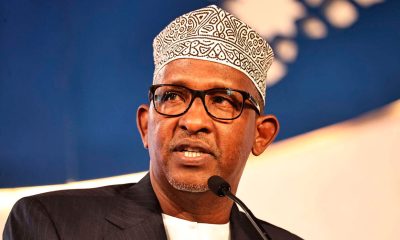
 Politics3 days ago
Politics3 days agoDuale-Tuya Swap: The Dirty Deal Behind Duale’s Move to the Environment Docket
-
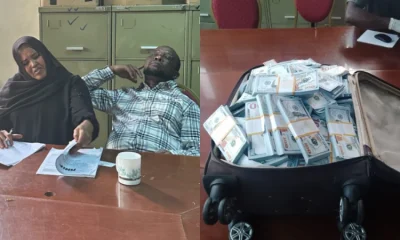
 News1 day ago
News1 day agoEACC Arrests Former Ex-MP Caught With Fake US Dollars Worth Millions
-

 News1 week ago
News1 week agoOutrage As Tatu City Posts Discriminatory Job Advertisement
-
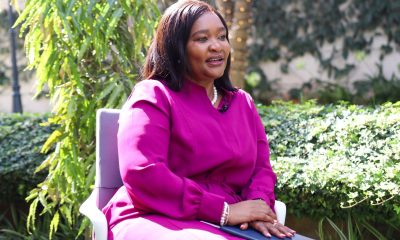
 News3 days ago
News3 days agoRebecca Miano Declines Ruto’s Nomination As Attorney General
-
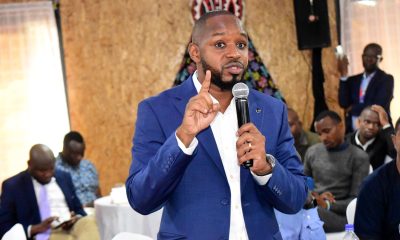
 News1 day ago
News1 day agoBoniface Mwangi Hints at DP Rigathi Gachagua Alleged Involvement in Violent Parliament Invasion
-
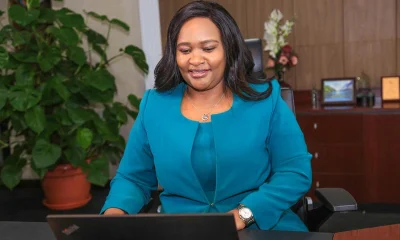
 Politics1 week ago
Politics1 week agoRebecca Miano: A Profile of Ruto’s Attorney General Nominee
-
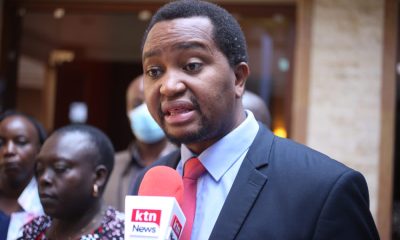
 Investigations2 weeks ago
Investigations2 weeks agoKEMSA Scandals: Pressure Mounting On Ruto to Fire Corrupt Nyakera
-
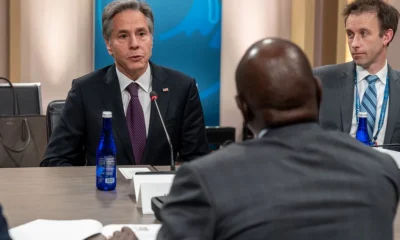
 News21 hours ago
News21 hours agoDetails Of US Secretary of State Blinken Phone Call To Ruto